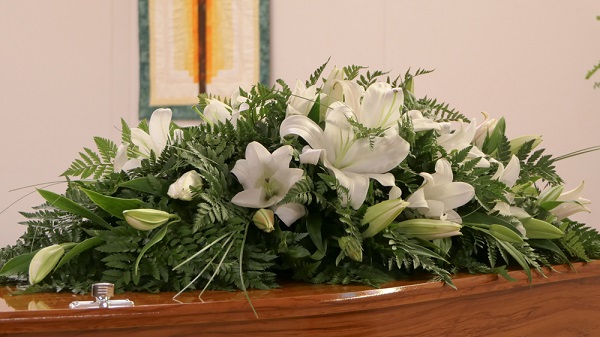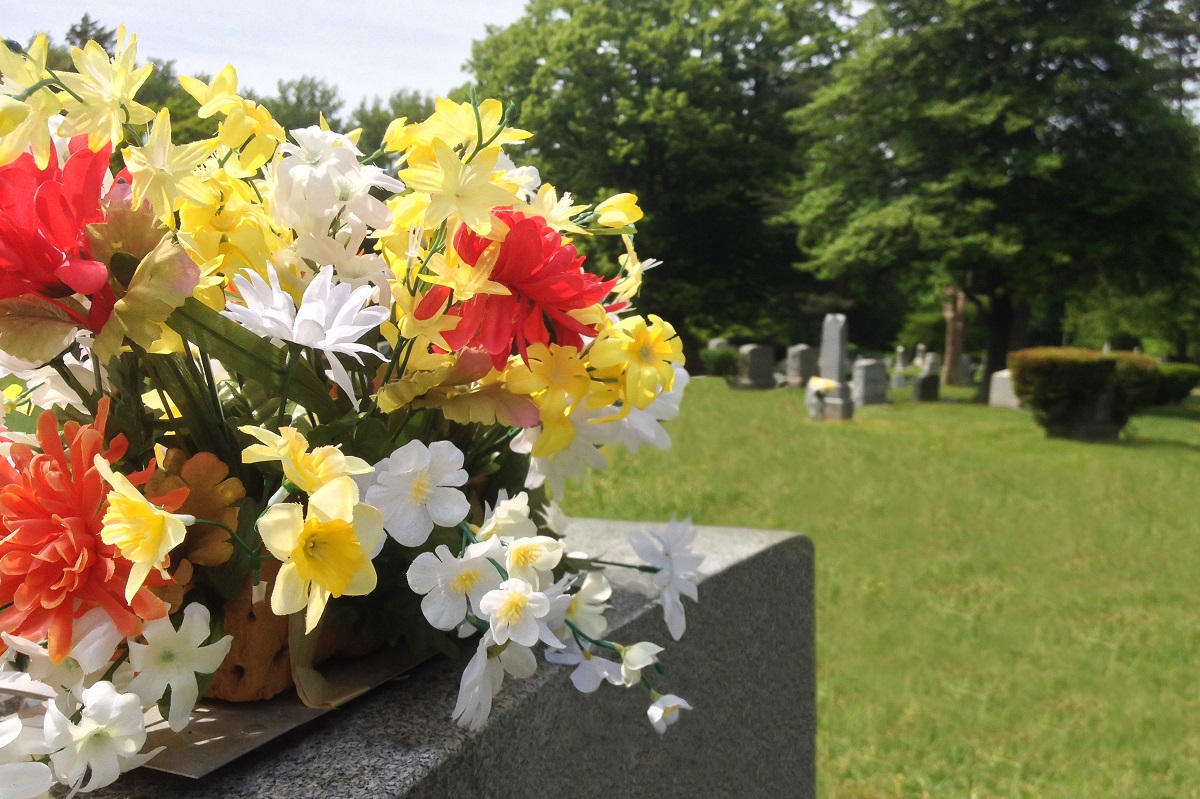Not only does it save your loved ones the stress of having to make complex decisions and arrangements when they should be mourning, it also helps to put your mind at rest, knowing that everything is already sorted well in advance.
The most essential part of making plans for your funeral, however, is to let someone know them. To help you navigate these sensitive discussions, we’ve compiled some practical tips and compassionate advice on how to express your funeral wishes to your loved ones. This guide will cover why these conversations matter so much, offer tips on how to approach them, and explain how to document your wishes clearly.
One of the most important reasons to talk about your funeral arrangements is that your loved ones can't know your wishes unless you share them. Surprisingly, only 1% of people know all their loved one's funeral wishes, according to the SunLife Cost of Dying Report 2025, sunlife.co.uk/funeral-costs{.link-primary}.
This statistic highlights how important it is to have these conversations before it's too late. By discussing your preferences, you alleviate the burden on your family, ensuring that they can carry out your wishes without uncertainty or stress.

Talking about death can be very emotionally challenging, but it’s an essential part of ensuring your wishes are respected. Here are 4 simple tips to help you approach this delicate topic:
Once you’ve opened the conversation about death, the next essential step is to move on to discussing your specific funeral wishes. When discussing your funeral preferences, it’s helpful to cover a few key topics, which might include:
Cremations and burials each carry their own unique significance, symbolising the diverse beliefs and preferences of individuals and communities. Cremation can offer greater flexibility and environmental advantages, whereas traditional burial often provides a tangible link to ancestral roots and cultural heritage.
Decide/discuss whether you prefer to be buried or cremated, and share your choice with your loved ones.

Everyone’s different. Some prefer a small funeral, attended only by close family. Others find comfort in the idea of a large celebration with as many family members and friends as possible. They might envision bright clothes and singing. Some would rather have no funeral at all. It’s not a one-size-fits-all. How you wish to leave this world should be entirely in your hands.
However, keep in mind that it’s your loved ones who will live on to grieve and carry you in their memory beyond your years. What we mean by this is, if you would prefer a funeral with a small number of attendees, or no attendees at all, be prepared for a potential debate on the topic, as your loved ones might want or need the opportunity for more support and closure when the time comes to say their final goodbyes. It’s important that the opinions of those who matter most are heard, and taken into consideration.
Consider any specific elements you want included in your service, such as readings, music, or who you’d like to lead the ceremony.
When it comes to the matter of who leads the ceremony, the traditional role of a funeral celebrant is to guide the funeral service. This may include delivering the eulogy, overseeing the order of service, inviting friends and family to share readings, and leading the attendees in a moment of quiet reflection.
Some funeral providers, like Distinct Cremations, offer the opportunity for services to be entirely family-led, providing loved ones with the privacy to share cherished memories, view the coffin at the crematorium, and have an opportunity to say their goodbyes.
Think about how you want to be remembered, whether through a traditional service, a celebration of life, or something unique that reflects your personality. If you’re not sure, your loved ones will be in an ideal position to provide insight on this topic, so it might be helpful to have an open discussion.
Understanding the differences between a wake, a funeral service, and a viewing can provide clarity, and help you make informed decisions.
Each of these ceremonies plays a crucial role in the grieving process, offering distinct ways to remember and celebrate your life. By selecting the combination of ceremonies that best aligns with your values and traditions, you can create a meaningful and comforting farewell.
After discussing your funeral wishes with loved ones, it’s crucial to document them so that your preferences are clear and legally recognised. Here are some ways to ensure your wishes are followed:
A funeral plan allows you to set out your wishes in detail and pre-pay for funeral services. This not only ensures your preferences are respected but also alleviates the financial burden on your loved ones.
You can work with a funeral provider, like Distinct Cremations, to create a plan that reflects your desires. Our low cost funeral plans let you arrange and pay for a simple and affordable funeral for yourself or a loved one ahead of time.

Including your funeral wishes in your Will is another way to document your preferences. However, it’s important to know that in the UK, funeral wishes outlined in a Will are not legally binding. While your executor will have ownership of the body, and is encouraged to follow your wishes, they are not obligated to do so, as they are technically considered the decision-makers with regard to funeral arrangements. For this reason, it’s wise to both document your wishes and discuss them directly with your loved ones.
A Letter of Wishes is a less formal document that can accompany your Will or be kept separately. It allows you to express your funeral preferences in a clear, written format. While it’s not legally binding, it provides guidance to your loved ones during a challenging time.
For those who prefer a simpler approach, you can also document your funeral wishes in a letter, a conversation recorded with permission, or even in a dedicated journal. The key is to ensure your loved ones know where to find this information when the time comes.
By taking the time to discuss and document your funeral wishes, you give your loved ones a clear path to follow, easing their emotional burden during a time of grief. Remember, these conversations may be difficult, but they are a true gift of love and consideration for those who matter most to you.
Taking control of your farewell plans in advance will allow your family and friends to focus on grieving and finding solace when the time comes.
A funeral plan offers a simple, affordable way to pay for a funeral ahead of time, in one lump-sum, or balanced monthly instalments. At Distinct Cremations, our low-cost funeral plans put the focus on you and your loved ones’ needs, rather than the frills and costly extras associated with traditional funerals.
This simplicity not only provides peace and comfort to the person making the arrangements, but also serves as a compassionate gift to those left behind.
All of our direct cremation funeral plans include:
Celebrate a life without the restrictions of a funeral
Simple, dignified and our cheapest funeral plan
No formal service or attendees present
For friends and family to pay respects
A choice between a 30 or a 60 minute service
A choice between a family led or celebrant led service
Whatever stage of the journey you’re in, you’ll find more helpful guides to support you through challenging times here at Distinct Cremations.

It's never nice thinking about your own death, and many of us understandably prefer not to. It’s comforting to realise that you have the autonomy to navigate your own passing, and the best thing you can give yourself is the peace of mind that your end of life plans are in place.
Preparing for your own death
There are a number of ways to prepay for a funeral, however unfortunately not all of them are within everyone’s financial capability. This is why monthly funeral payment plans, spread over a number of years, are one of the best ways to pay for a funeral ahead of time.
Paying for your own funeral
Many of us are familiar with the idea of cremation, but for those who’ve never attended a service, the question of what happens at a cremation still remains. While each funeral is unique to the deceased and their families, all cremations will have some similarities.
What happens at a cremation serviceWe offer the highest level of support, but don't just take our word for it. Below are recent reviews from customers who bought a funeral with us.





